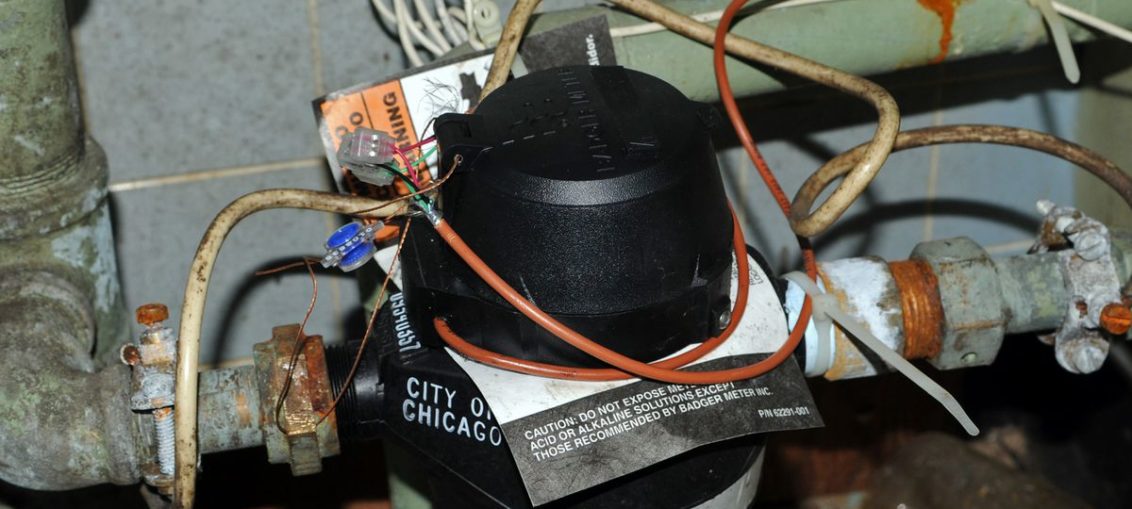
Days earlier than taking workplace, Mayor Lori Lightfoot declared water a “basic human right” and ended water shut-offs that had reduce off a “lifeline” to low-income households struggling to pay skyrocketing water payments.
Chicago seems to be paying a heavy worth for that kinder, gentler method. And it might have long-term ramifications for the most important of 4 metropolis worker pension funds.
Since Lightfoot ended the last word weapon in opposition to water scofflaws, month-to-month water invoice collections dropped by $20 million — from $74.7 million in October to $54.6 million in November and $55.5 million in December. January collections have been $61.eight million.
An even greater pink flag is February. Through Feb. 17, water invoice collections have been $13.eight million, based on data launched to the Chicago Sun-Times in response to a Freedom of Information request.
City Comptroller Reshma Soni stated by way of a spokesperson she’s not involved about these early February returns, arguing that’s “just the way the billing cycle works.” People are inclined to pay their payments on the finish of the month.
Some of the drop-off in water collections may very well be seasonal or tied to conservation, town stated.
But Civic Federation President Laurence Msall warned the precipitous decline in collections might spell bother for the most important of 4 metropolis worker pensions.
Four years in the past, the City Council slapped a 29.5% surcharge on water and sewer payments to save lots of a Municipal Employees Pension Fund that had $18.6 billion in unfunded liabilities and was as a consequence of run out of cash in 2025.
Water invoice collections are the bottom upon which the surcharge is utilized. When collections plummet, revenues fall wanting the quantity wanted to maintain town’s largest pension fund on the highway to 90% funding.
“It’s clear that these one-off funding mechanisms — whether it’s water, 911 fees or even property taxes — are not sufficient to keep these funds in a safe place financially,” Msall stated Tuesday.
“The bigger question is whether it’s sustainable to fund the Municipal pension fund with water receipts. … What’s driving the drop in collections? Is it consumption? Is it something else? Or is it the lack of the threat of turn-offs? We encourage the city to come forward with those details to demonstrate why there is such a significant drop.”
Jeff Johnson, a trustee of the Municipal Employees Pension Fund, stated he’s not overly involved in regards to the drop in water collections and its influence on the surcharge. That’s despite the fact that the fund has property to cowl simply 24% of its liabilities.
“The statute requires that we get our $421 million this year no matter what. The funding source doesn’t matter to us. It’s nice to identify one. But we still get the money either way,” Johnson stated, noting that the ramp to actuarially-determined contributions will finish in 2023.
“If they’re short at water, they would have to find the revenue somewhere else. … That [surcharge] was supposed to be the vehicle. But we can get money from property taxes. It doesn’t just have to be the water tax.”
For a long time, water shut-offs have been the last word weapon in opposition to water invoice scofflaws — a listing that when included scores of metropolis workers and staff from different native authorities businesses.
Lightfoot’s transition staff proposed eradicating water shut-offs from town’s arsenal. The new mayor embraced the advice days earlier than taking workplace.
“Water is a basic human right. And when you cut somebody off from water, you’re effectively evicting them and putting them on the street. We will not do that in the city. That is a heartless act,” she instructed her transition staff to applause on May 17.
During a nine-month investigation, American Public Media Reports analyzed water shut-off notices between 2007 and 2018 and located they have been concentrated in black and Hispanic communities.
The value of water for the typical household of 4 in Chicago “nearly tripled” throughout that interval, the…